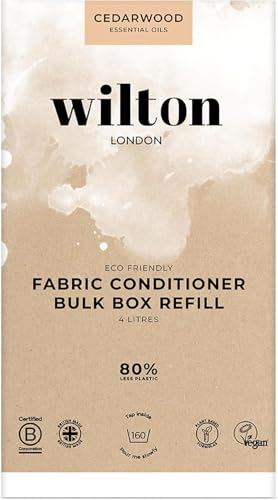


Vinegar, a household staple, is not just for cooking and salad dressings. It can also be a powerful ally in your laundry routine. In this ultimate guide, we will explore the many benefits of using vinegar when washing clothes, as well as expert tips and tricks to get the most out of this natural ingredient.
One of the main benefits of washing clothes with vinegar is its ability to remove odors. Whether it’s that sweaty gym shirt or a musty towel, vinegar can help eliminate unpleasant smells. Vinegar is also a natural deodorizer and can neutralize odors caused by bacteria, leaving your clothes smelling fresh and clean.
Not only does vinegar help with odor removal, but it also acts as a natural fabric softener. Harsh chemical fabric softeners can leave residue on your clothes and irritate sensitive skin. Vinegar, on the other hand, softens fabrics without any additional chemicals, making it an eco-friendly and gentle alternative.
In addition to removing odors and softening fabrics, vinegar can also help with stain removal. It’s particularly effective at removing yellow stains caused by sweat on white clothes. Simply soak the stained garment in a mixture of vinegar and water before washing, and watch the stains disappear.
When using vinegar in your laundry, it’s important to follow a few expert tips and tricks. Avoid using vinegar on delicate fabrics like silk or wool, as it can cause damage. It’s also recommended to use white vinegar instead of apple cider or other flavored vinegars, as they may leave behind unwanted colors or scents on your clothes.
Remember to always check the care labels on your clothing before using vinegar, as some fabrics may not be vinegar-friendly. It’s also a good idea to test vinegar on a small, inconspicuous area of the garment before using it on the entire item.
So, the next time you do your laundry, consider adding vinegar to your washing routine. Not only will it help remove odors and soften fabrics, but it’s also an affordable and natural alternative to chemical-laden laundry products. With these expert tips and tricks, your clothes will come out smelling fresh and looking their best.
Why Use Vinegar for Washing Clothes?
Vinegar is a versatile and affordable household product that can be used for various cleaning tasks, including laundry. Here are a few reasons why you should consider using vinegar for washing clothes:
- Natural and Chemical-Free: Vinegar is a natural ingredient that is free from harmful chemicals, making it a safe option for washing clothes.
- Removes Odors: Vinegar is known for its ability to eliminate odors. Adding vinegar to your laundry can help remove stubborn smells, such as sweat or mildew, from your clothes.
- Brightens and Softens Fabric: Vinegar has a natural acidity that can help brighten and soften fabrics. It can also help prevent colors from fading, keeping your clothes looking new for longer.
- Reduces Static: Static cling can be a frustrating issue when doing laundry. Adding vinegar to your wash cycle can help reduce static, leaving your clothes static-free.
- Preserves Garment Quality: Vinegar can help extend the life of your clothes by preserving their quality. It can help remove residue and build-up from detergent and fabric softeners, ensuring that your clothes stay fresh and clean.
Overall, using vinegar for washing clothes is a cost-effective and natural alternative to commercial laundry products. Give it a try and experience the many benefits it offers!
The Benefits of Using Vinegar in Your Laundry Routine
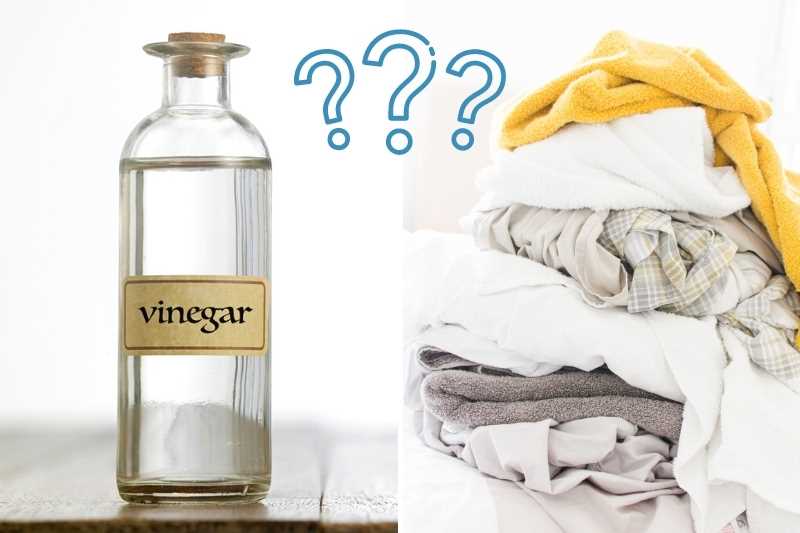
Vinegar is not only a versatile condiment for your kitchen, but it can also be a powerful addition to your laundry routine. Here are some of the benefits of using vinegar when washing your clothes:
1. Natural Fabric Softener
One of the main benefits of using vinegar in your laundry is its ability to act as a natural fabric softener. Instead of using commercial fabric softeners that are often filled with artificial fragrances and chemicals, vinegar provides a natural alternative. It helps to soften the fibers of your clothes, making them feel smoother and more comfortable against your skin.
2. Odor Eliminator
Vinegar is also known for its odor-eliminating properties. If you have clothes that have stubborn smells, such as sweat or mildew, adding vinegar to your laundry can help get rid of these odors. It effectively neutralizes the smells without leaving behind any artificial scents or residues.
3. Stain Remover
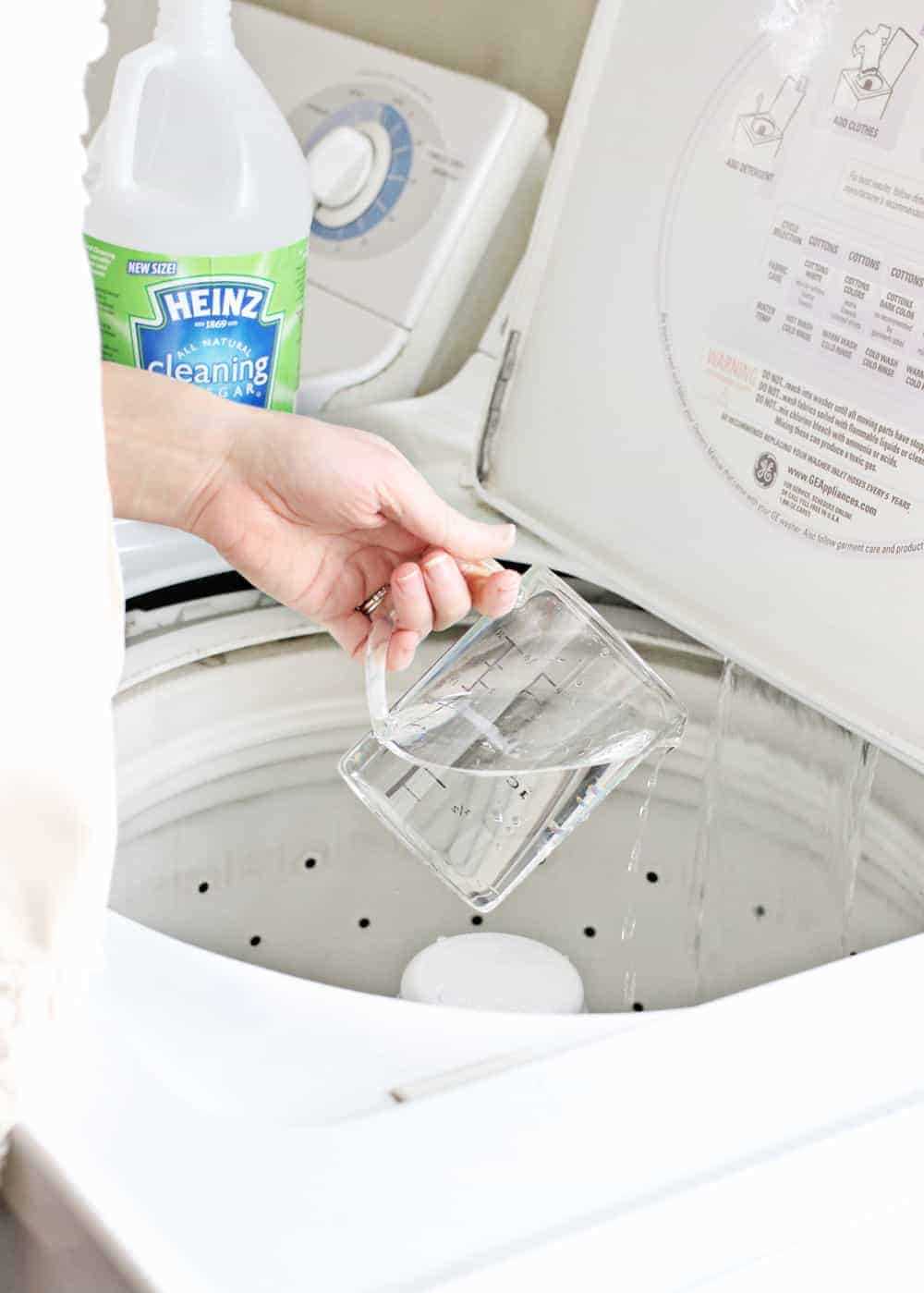
Vinegar can be used as a natural stain remover. It is particularly effective in removing stains caused by sweat, deodorant, or food. Simply apply a small amount of vinegar directly to the stain before washing, and it will help break down the stain and facilitate its removal.
4. Colour Brightener
If your coloured clothes have started to fade, vinegar can help restore their vibrancy. Adding vinegar to your laundry load can prevent colours from becoming dull or faded over time. It can also help remove any residue left behind by detergents, which can make colours appear dull.
5. Allergen Remover
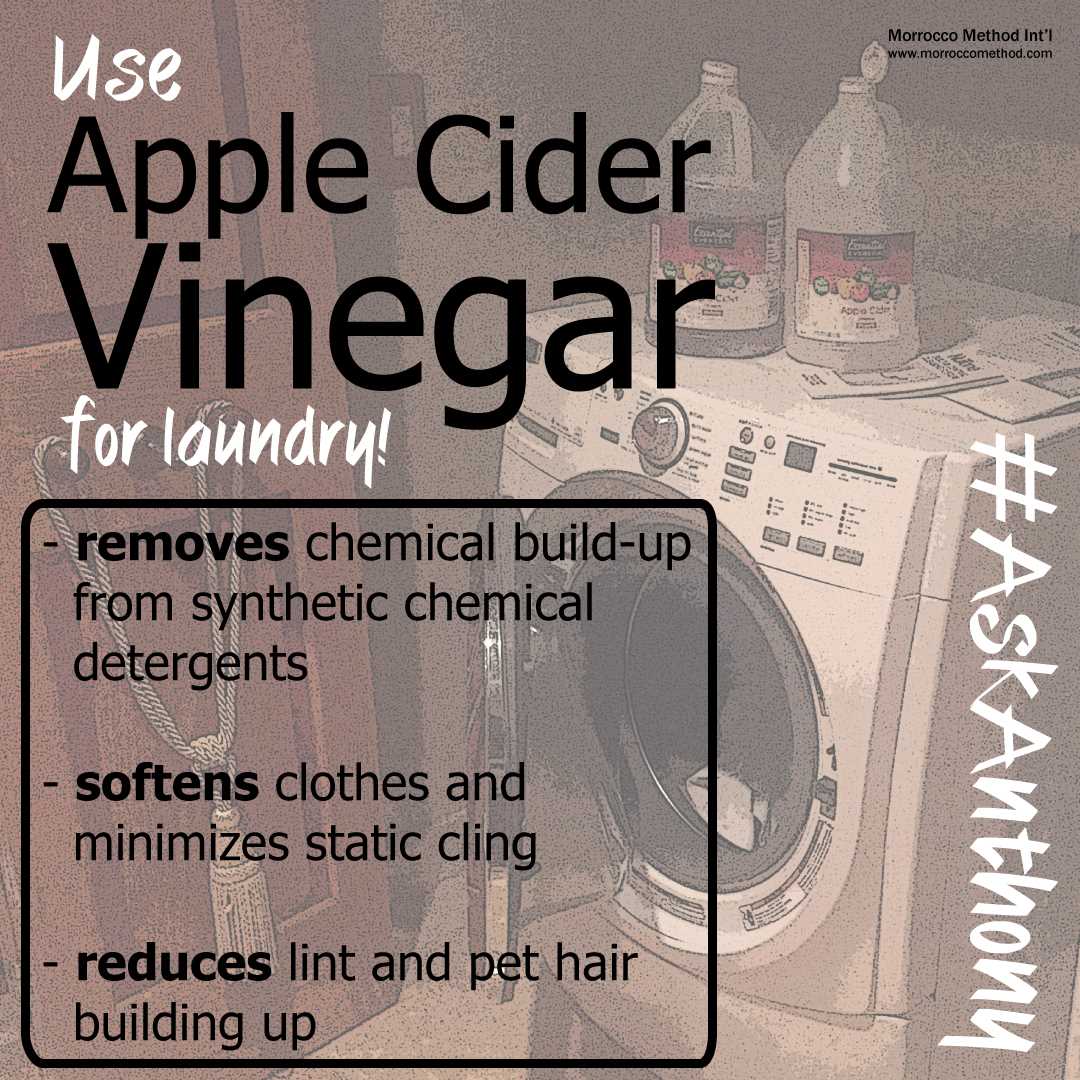
Vinegar is a natural allergen remover and can help eliminate common allergens that may be present on your clothes, such as pollen, pet dander, or dust mites. Adding vinegar to your laundry routine can be particularly beneficial for individuals with allergies or sensitivities.
Overall, incorporating vinegar into your laundry routine can have several benefits for both your clothes and your health. It is a natural alternative to harsh chemicals and can help make your clothes softer, fresher, and cleaner.
Picking the Right Vinegar for Laundry
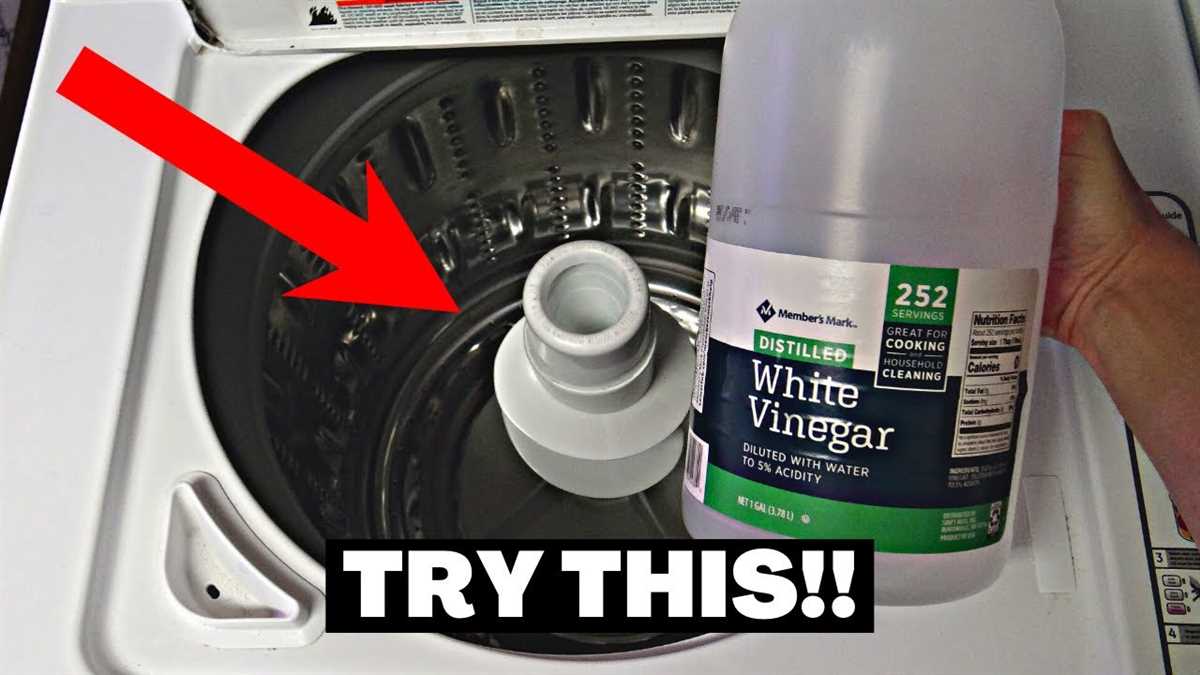
When it comes to using vinegar for laundry purposes, it’s important to choose the right type of vinegar to ensure optimal results. Here are some factors to consider when selecting vinegar for your laundry needs:
1. White Distilled Vinegar
- White distilled vinegar is the most commonly used type of vinegar for laundry.
- It is made from the fermentation of distilled alcohol and contains acetic acid.
- White distilled vinegar is clear in color and has a strong, pungent odor.
- It is a natural disinfectant and deodorizer, making it a great choice for cleaning and freshening laundry.
2. Apple Cider Vinegar
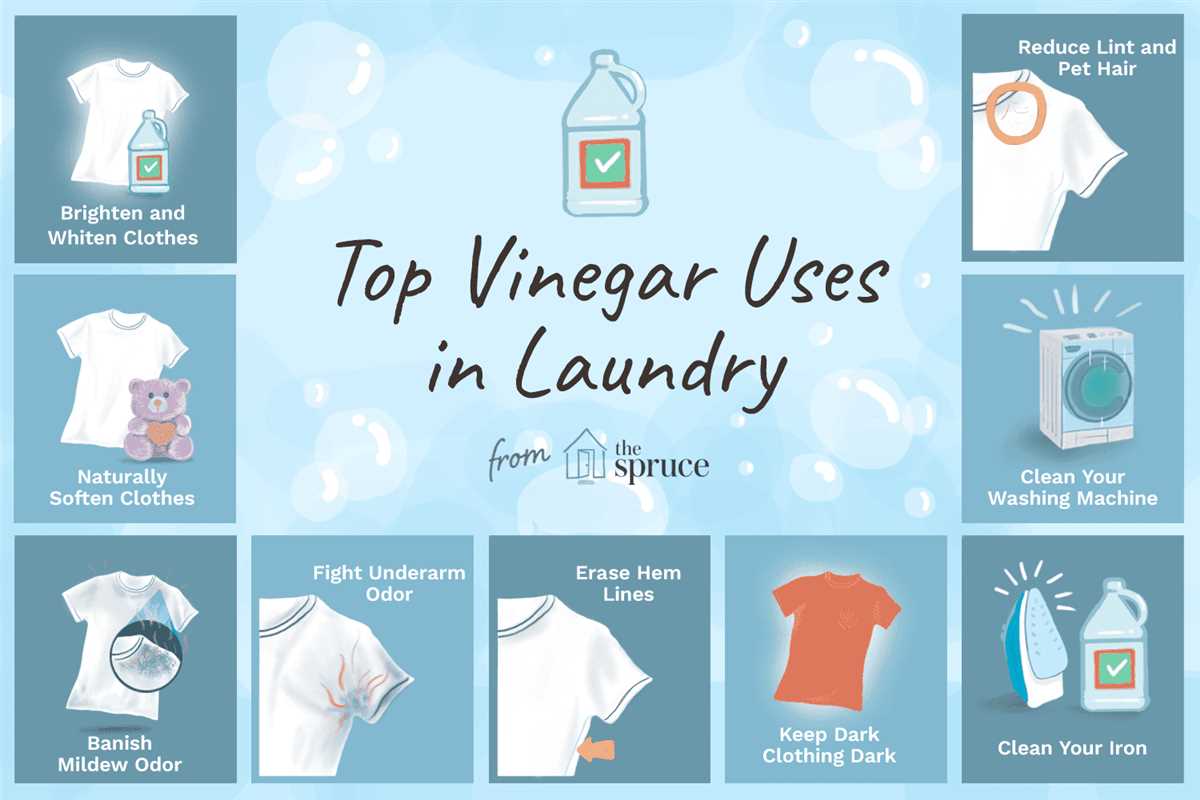
- Apple cider vinegar is another popular option for laundry.
- It is made from fermented apple juice and has a milder scent compared to white distilled vinegar.
- Apple cider vinegar has antibacterial properties and can help to remove odors from clothes.
- However, it may not be as effective as white distilled vinegar for stain removal.
3. Wine Vinegar
- Wine vinegar, such as red wine vinegar or white wine vinegar, can also be used for laundry purposes.
- These vinegars are made from fermented wine and offer a unique scent.
- They can help to remove odors from clothes and act as natural fabric softeners.
- However, they may not have the same cleaning power as white distilled vinegar.
It’s important to choose vinegar that is free from additives or artificial colors for laundry purposes. Avoid using flavored or balsamic vinegars, as they may stain or leave residues on your clothes.
Tip: If you’re unsure which vinegar to use, start with white distilled vinegar as it is the most versatile and effective option for laundry.
Types of Vinegar and their Suitability for Different Fabrics
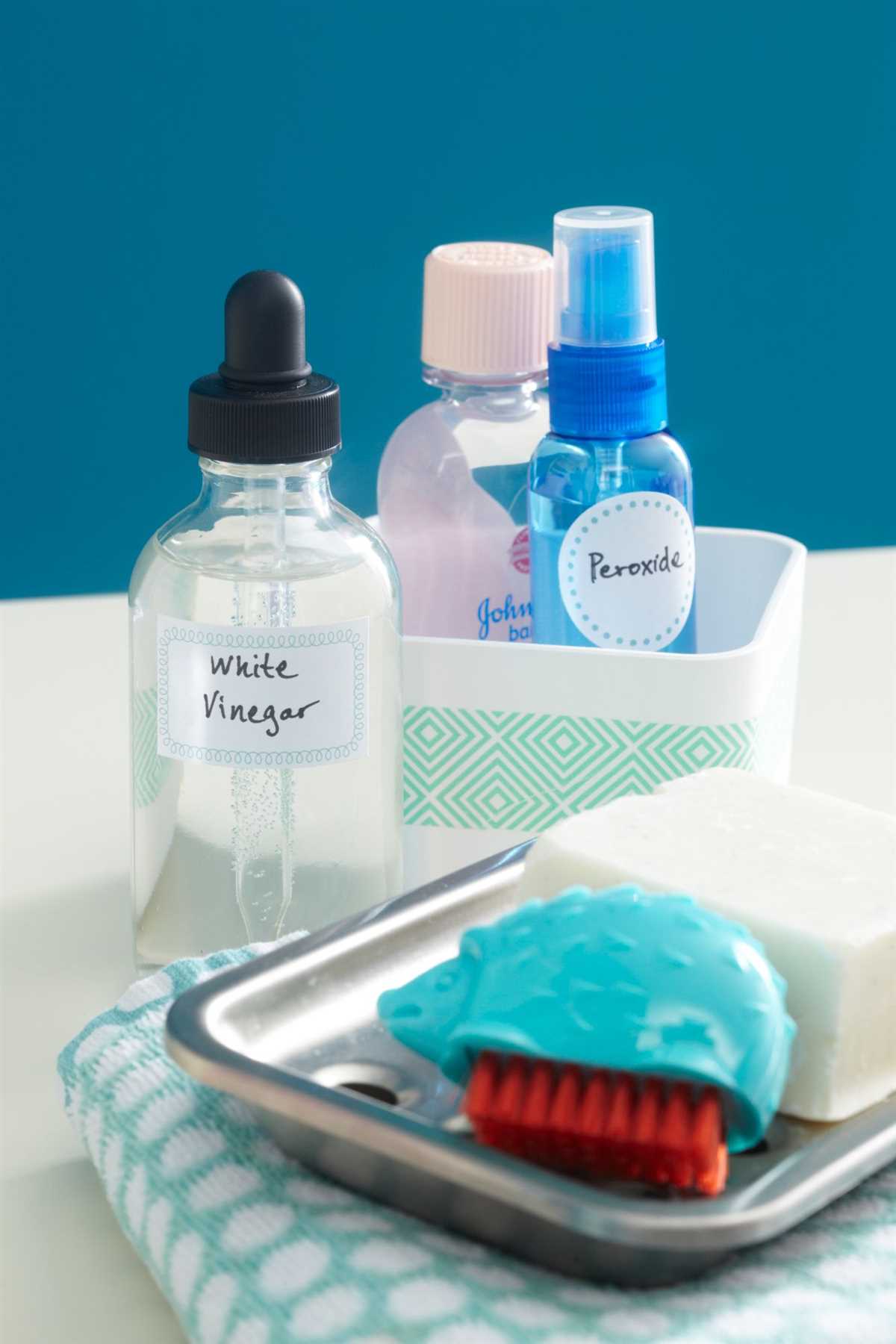
White Vinegar
White vinegar, also known as distilled vinegar, is the most commonly used type of vinegar for laundry purposes. It is suitable for all types of fabrics and can help remove stains and odors. White vinegar is a gentle and natural cleaner that is effective in removing soap residue, mineral buildup, and mildew.
Apple Cider Vinegar
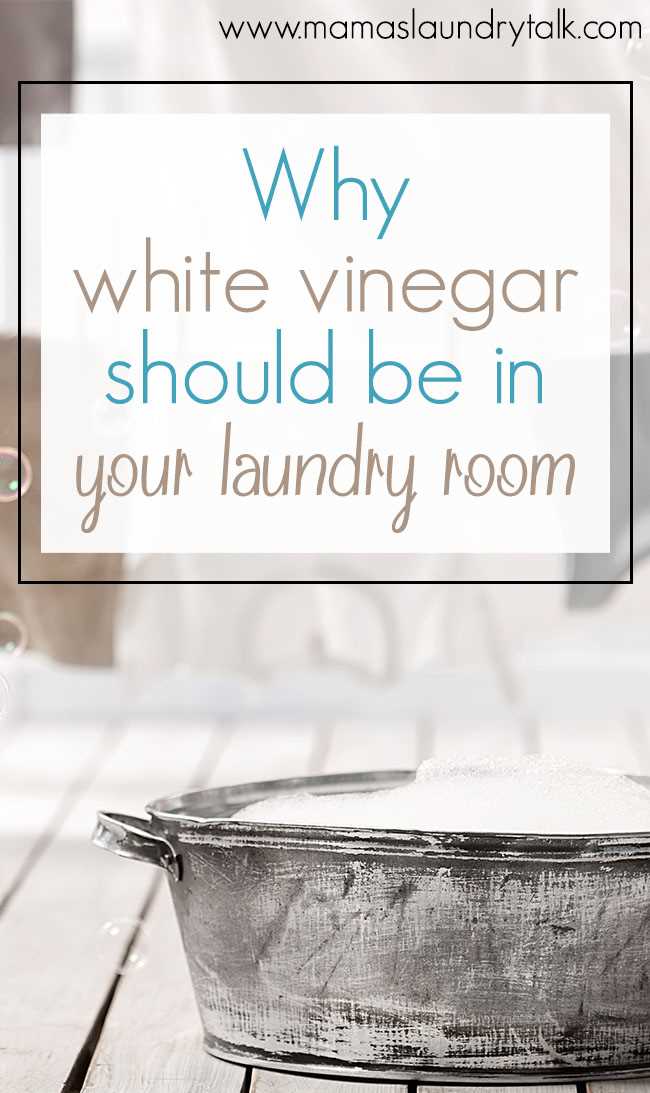
Apple cider vinegar has a slightly milder smell compared to white vinegar. It is suitable for most fabrics, especially natural fibers like cotton and linen. Apple cider vinegar can help soften fabrics, remove odors, and reduce static cling. However, it may not be as effective in removing tough stains.
Red Wine Vinegar
Red wine vinegar is made from red wine, and it has a distinct smell. It is not commonly used for laundry purposes, as its dark color may cause stains on light-colored fabrics. However, it can be used as a natural fabric softener for dark-colored fabrics. It is not recommended for delicate or light-colored fabrics.
Balsamic Vinegar
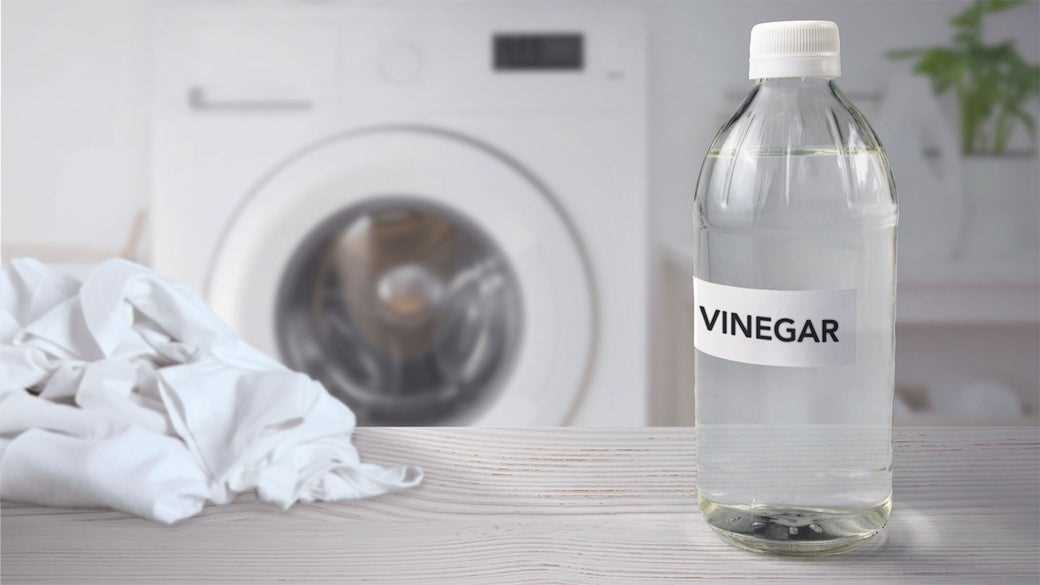
Balsamic vinegar is a dark, thick vinegar with a sweet and tangy flavor. Due to its dark color, it is not recommended for light-colored fabrics as it can cause staining. Balsamic vinegar is not commonly used for laundry, but it can be used as a natural fabric softener for dark-colored fabrics.
Rice Vinegar
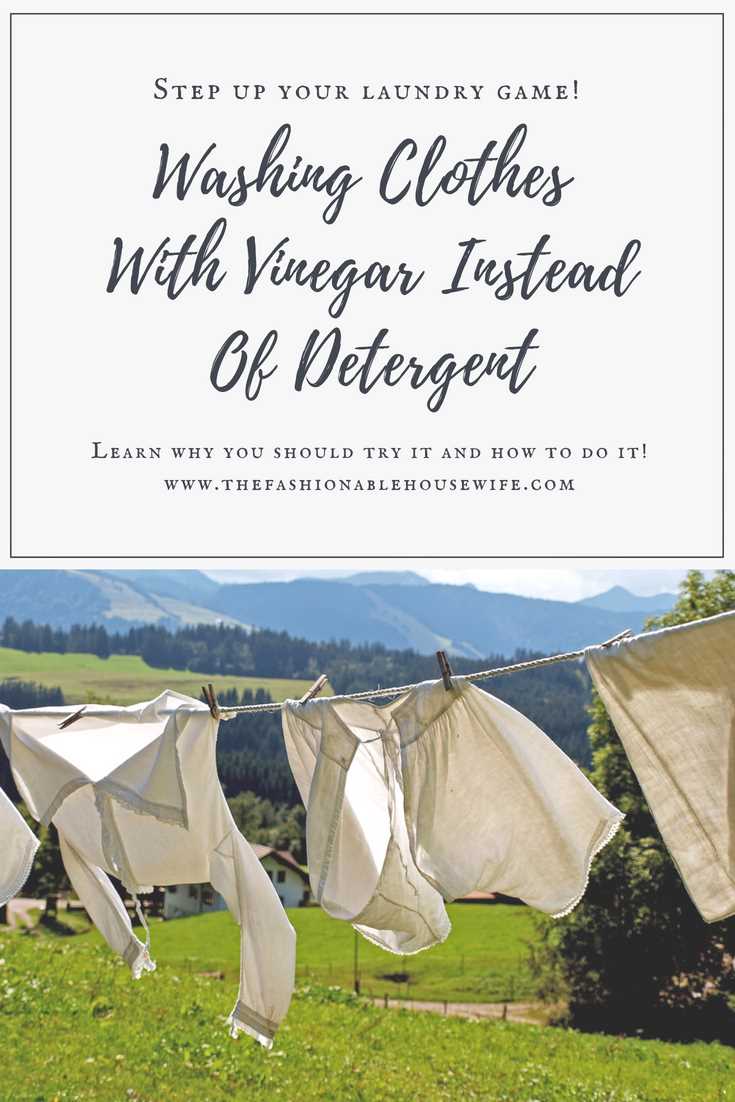
Rice vinegar is made from fermented rice and has a mild flavor. It is suitable for most fabrics, especially delicate and light-colored fabrics. Rice vinegar can help remove stains, whiten fabrics, and eliminate odors. It is a gentle option that is effective in cleaning and refreshing clothes.
Conclusion
When choosing a vinegar for your laundry, consider the type of fabric and the desired outcome. White vinegar is the most versatile and commonly used type, suitable for all fabrics. Apple cider vinegar is great for natural fibers, while red wine and balsamic vinegar are best avoided for light-colored fabrics. Rice vinegar is a gentle option suitable for delicate fabrics. Experiment with different types of vinegar to find the one that works best for your laundry needs.
How to Use Vinegar in the Washing Machine
Vinegar is a versatile household ingredient that can be used for a variety of cleaning purposes, including in the washing machine. Here are some expert tips and tricks on how to use vinegar to wash your clothes:
- Mix vinegar with water: Before adding vinegar to your washing machine, dilute it with water. A common ratio is 1 cup of vinegar per gallon of water. This will ensure that the vinegar is not too strong and will help prevent any potential damage to your clothes or washing machine.
- Add vinegar during the rinse cycle: Vinegar is most effective when added during the rinse cycle. This allows it to fully mix with the water and reach your clothes evenly. Simply pour the vinegar and water mixture into the fabric softener dispenser or directly into the washing machine drum.
- Use vinegar as a fabric softener: Vinegar can act as a natural fabric softener, leaving your clothes feeling soft and fresh. It can help remove any residual detergent, which can sometimes make clothes feel stiff or rough. Plus, vinegar is a natural deodorizer, so it can help eliminate any funky smells from your clothes.
- Combat odors and stains: If you have clothes with strong odors or stubborn stains, presoaking them in a mixture of vinegar and water can help break down and eliminate these issues. Let the clothes soak for about 30 minutes before washing them as usual.
- Prevent colors from fading: Vinegar can also help prevent colors from fading in your clothes. Add a splash of vinegar to your machine while washing colored garments to keep them vibrant and long-lasting.
- Keep your washing machine clean: In addition to cleaning your clothes, vinegar can also be used to clean your washing machine. Simply run an empty cycle with vinegar to remove any buildup or residue inside the machine. This will help keep it running efficiently and smelling fresh.
A Step-by-Step Guide to Adding Vinegar to your Laundry Load
Adding vinegar to your laundry load can be a simple and effective way to improve the cleanliness and freshness of your clothes. Follow these easy steps to incorporate vinegar into your washing routine:
- Gather your materials: Before you begin, make sure you have all the necessary materials. This includes white vinegar, your laundry detergent, and of course, your dirty clothes.
- Sort your laundry: Sort your laundry as you normally would, separating lights from darks and delicates from regular clothing. This step is crucial for avoiding any color bleeding or damage.
- Load your washing machine: Begin by carefully placing your sorted laundry into the washing machine. Be sure not to overload the machine to ensure that the clothes have enough room to move around freely.
- Add laundry detergent: Measure out the appropriate amount of laundry detergent for your load size, following the instructions on the packaging. Pour the detergent directly into the washing machine dispenser or drum.
- Add vinegar: Now it’s time to add the vinegar! Measure out 1/2 cup to 1 cup of white vinegar, depending on the size of your load. Pour the vinegar directly into the washing machine dispenser or drum along with the laundry detergent.
- Select the appropriate cycle: Choose the appropriate washing cycle for your load, taking into consideration the fabric type and level of dirtiness. Follow the manufacturer’s instructions for your specific washing machine.
- Let the machine do its job: Once you’ve selected your cycle, start the washing machine and let it run its full course. The vinegar will help to remove odors, soften fabrics, and eliminate bacteria.
- Remove and dry your clothes: Once the washing cycle is complete, remove your clothes from the machine and promptly transfer them to the dryer or hang them up to air dry. Enjoy the fresh and clean scent of your freshly washed laundry!
Adding vinegar to your laundry load is a simple yet effective way to enhance the cleanliness and freshness of your clothes. Give it a try and see the difference it can make in your laundry routine!
Vinegar as a Natural Fabric Softener
Using vinegar as a fabric softener is not only an affordable and eco-friendly option, but it also has several benefits for both your clothes and the environment. Vinegar can be used as a substitute for conventional fabric softeners, which often contain harmful chemicals that can irritate skin and cause allergic reactions.
Here are some reasons why vinegar is a great natural fabric softener:
- Softens fabrics: Vinegar helps to break down the minerals in hard water, which can make clothes feel stiff and rough. By adding vinegar to the rinse cycle, your clothes will come out softer and more comfortable to wear.
- Reduces static: Vinegar helps to eliminate static electricity in clothes, making it easier to fold and wear them without the annoying cling.
- Removes odors: Vinegar has natural deodorizing properties and can help to remove unpleasant smells from your clothes. It is especially effective for removing odors caused by sweat and mildew.
- Preserves fabric colors: Vinegar can help to retain the vibrancy of your clothes’ colors. It acts as a natural fabric brightener and prevents the colors from fading or bleeding.
- Environmentally friendly: Using vinegar as a fabric softener is a greener alternative to conventional softeners. It is biodegradable and does not contribute to pollution or harm aquatic life.
When using vinegar as a fabric softener, keep in mind the following tips:
- Use white distilled vinegar: White distilled vinegar is the best type to use as a fabric softener, as it does not contain any dyes or artificial fragrances that could stain or irritate your clothes.
- Add vinegar during the rinse cycle: Measure out half a cup to a cup of vinegar and add it to the fabric softener dispenser or directly to the rinse cycle. This will allow the vinegar to be evenly distributed and effectively soften your clothes.
- Avoid using vinegar on certain fabrics: While vinegar is generally safe to use on most fabrics, it is not recommended for delicate fabrics such as silk or acetate. Always check the care label on your clothes before using vinegar as a fabric softener.
In conclusion, vinegar is a natural and effective alternative to commercial fabric softeners. It softens fabrics, reduces static, removes odors, preserves fabric colors, and is environmentally friendly. Give it a try and see the difference it can make in the softness and freshness of your clothes!
FAQ
What are the benefits of washing clothes with vinegar?
Washing clothes with vinegar can offer several benefits. Firstly, it helps to remove odors from fabrics, making your clothes smell fresh and clean. Vinegar is also effective at removing stains and can be used as a natural fabric softener. Additionally, vinegar can help to brighten colors in your clothes and prevent them from fading over time.
How do I use vinegar to wash clothes?
Using vinegar to wash clothes is easy. Simply add half a cup of distilled white vinegar to your washing machine during the rinse cycle. This will help to remove any detergent residue from your clothes and leave them soft and odor-free. If you have particularly stubborn stains, you can also soak the clothes in a mixture of vinegar and water before washing them.
Is vinegar safe to use on all types of fabrics?
Vinegar is generally safe to use on most types of fabrics. However, it is always a good idea to check the care label on your clothes before using vinegar. Some delicate fabrics, such as silk or wool, may not be suitable for vinegar washing. In these cases, it is best to consult a professional cleaner or use alternative methods for stain removal and fabric care.
Can vinegar help to remove stubborn stains?
Yes, vinegar can be effective at removing stubborn stains. To treat a stain with vinegar, mix equal parts vinegar and water and apply the solution to the stained area. Let it sit for a few minutes, then blot with a clean cloth or sponge. Repeat this process until the stain is gone, then wash the garment as usual. Vinegar works well on many types of stains, including coffee, wine, and grease.









